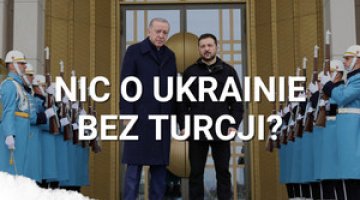The summit of the European Council and the prime minister of Turkey on the migration crisis
A summit of the European Council and Turkey, which was represented by Prime Minister Ahmet Davutoglu, was held on 29 November in Brussels. The summit was devoted to developing a plan to resolve the migration crisis. A joint statement consisting of eleven points was adopted as a result of the meeting. Its most important provisions include: consent for aid worth 3 billion euros to be offered to Turkey, the plan to cyclically convene EU-Turkey summits twice a year, the launch of the final phase of the visa liberalisation process for Turkish citizens, opening one of the chapters in Turkey’s pre-accession negotiations with the EU in December, and preparations to open more chapters next year. Turkey undertook to halting the passage of the economic migrants residing in its territory and to offer assistance to Syrian refugees in compliance with agreements previously signed with the EU. The summit is another stage of the intense EU-Turkish dialogue, but it did not mark any breakthrough, and its decisions are not binding on any of the parties.
Commentary
- Turkey is home to over two million refugees, and so Brussels sees it as a major player in resolving the crisis. However, the statement adopted during the summit is merely a framework document. Its provisions set a number of conditions Turkey needs to meet so that the decisions can be brought into practice. Furthermore, the discussion concerning the most important issues (for example, the sources of financing European assistance to Turkey) was postponed until the next meeting scheduled for 14 December. Despite courteous comments from both parties, the summit failed to bring a breakthrough in relations between Brussels and Ankara.
- The migration issue has been used by Ankara as a way to place pressure on Brussels. Since the Turkish policy in Syria has proven unsuccessful (this was additionally complicated by the Russian intervention, and especially by Turkey shooting down a Russian bomber aircraft), Turkey has been making efforts to strengthen its position in relations with the European Union. The lack of success in its Middle Eastern policy has given rise to frustration in Ankara. It seems unable to stop migration by itself, but the crisis itself is a convenient instrument for Turkey by use of which it can inject pressure in its relations with the EU. Dialogue with the EU is expected to enable Turkey to reinforce its political position; it may be used in domestic politics (the possible lifting of the visa requirement for Turkish citizens) and to make Brussels’ objections as regards the government’s authoritarian tendencies fall by the wayside.
- The interests of Brussels and Ankara are still in conflict. The unfreezing of Turkey’s accession process has met with strong scepticism from public opinion and individual EU member states. Most controversial is the fact that this would be done on Turkish terms. However, on the other hand, the solution of the present migration crisis is one of the most serious issues in current EU politics. It is especially important for Germany, which is the destination country for most migrants moving from the Middle East to Europe. Co-operation with Turkey is today presented by the EU as one of the most important means of overcoming the crisis. However, given the mutual distrust and misunderstandings, a lot of time and effort will be needed before an effective compromise is achieved.




